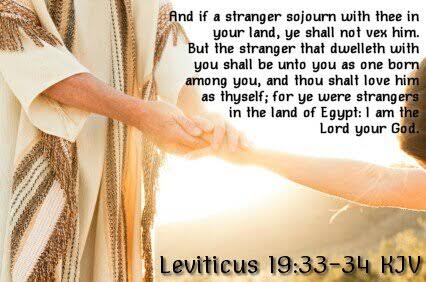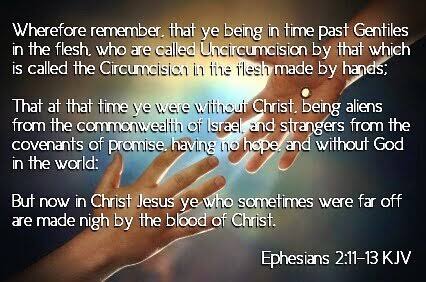

Some thoughts on Leviticus 25-27 in the seamless context of the full counsel
The need for confirmation of our salvation, to the end (Matt 24:13), by our being kept by YHWH’s power while we’re on probation, until we reveal His righteousness satisfactorily (Actscl 10:35; Rom 1:17; Heb 12:28) to become blameless and holy by submission to sanctification by His commandments, by the Spirit as proof of our love (1 Cor 1:8; Eph 1:4; 4:11-14,23,24; 1 Jn 5:3), is attested to throughout the Hebrew Scriptures and the New Testament.
Lev 26:2-13, which by the way, states the condition for the promise of 2 Chr 7:14, is summed up in the inspiring thumbnail endtime prophecy in Is 56:6-8, which is addressed to US – former Gentiles adopted in the House of Jacob (to be loved by them as they love themselves – Lev 19:34) to keep Shabbat and “take hold of” YHWH’s “everlasting covenant” (timeless precepts) ratified by the New Covenant (Heb 13:20,21), as “one new man” with the remnant of Israel (Lk 1:33; Rom 11; Eph 2:11,12,15,19).
For instance, there is nothing in Lev 17-20 or Deut 27:14-26 offensive to, or incongruent with the New Covenant (Matt 5:19; Rom 3:31)
Lev 25-27 isn’t just a diagnosis of agricultural mediocrity (Lev 25:1-24) and a dissertation on justice and kindness towards those who loyally serve us, but is a call to Israel and to US (unified with them in Christ, in the olive tree by cleaving to Jacob – Is 14:1; 54:3; 55:5), to always remember the covenant-keeping God Who “remembers the (everlasting) covenant of their (the House of Jacob’s) ancestors” (Lev 26:45; Deut 7:9-15), which was entered into unanimously by Israel, on our behalf as the future Messianic remnant of the House of Jacob (Lk 1:33), when at Sinai, Israel was solemnly incorporated under the yoke of heaven as the unique elect nation under YHWH (Deut 4:33-40; 7:6-8) bound by the loving yoke of a supreme code of marriage precepts (the Ten Words given “in comnandmenT’ – Ex 20; 34:27,28,32), as the eternal moral absolutes (the ‘sublime duties of man’ – Eccl 12:13; Lk 17:10) reflecting the Goodness and Sovereignty of the One and only God (Ex 19:5-8; 24:7,8; Deut 4:39; 29:12-15).
We read the Torah weekly to best understand ‘the Thought of Scripture’ as a whole, which refines our discernment of the mind of Christ (1 Cor 2:16: 2 Tim 3:14-17), because it is God’s promise that Torah study makes one wise because His precepts give us understanding (Ps 119:27-35,96-105,165; Prov 1-4; Is 28:9-12).
Even parts of the first five Books which seemingly have least relevance to us and hold least interest for us, supernaturally impart wisdom for our direction and preservation on the narrow path that leads to life eternal (Matt 7:14)


